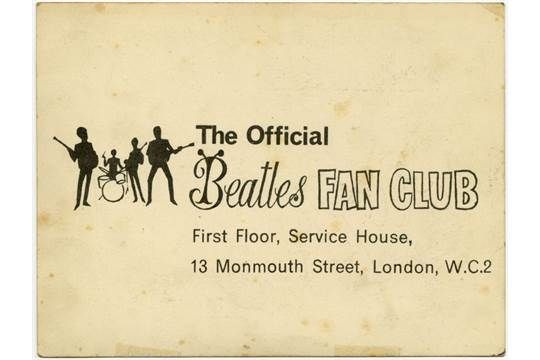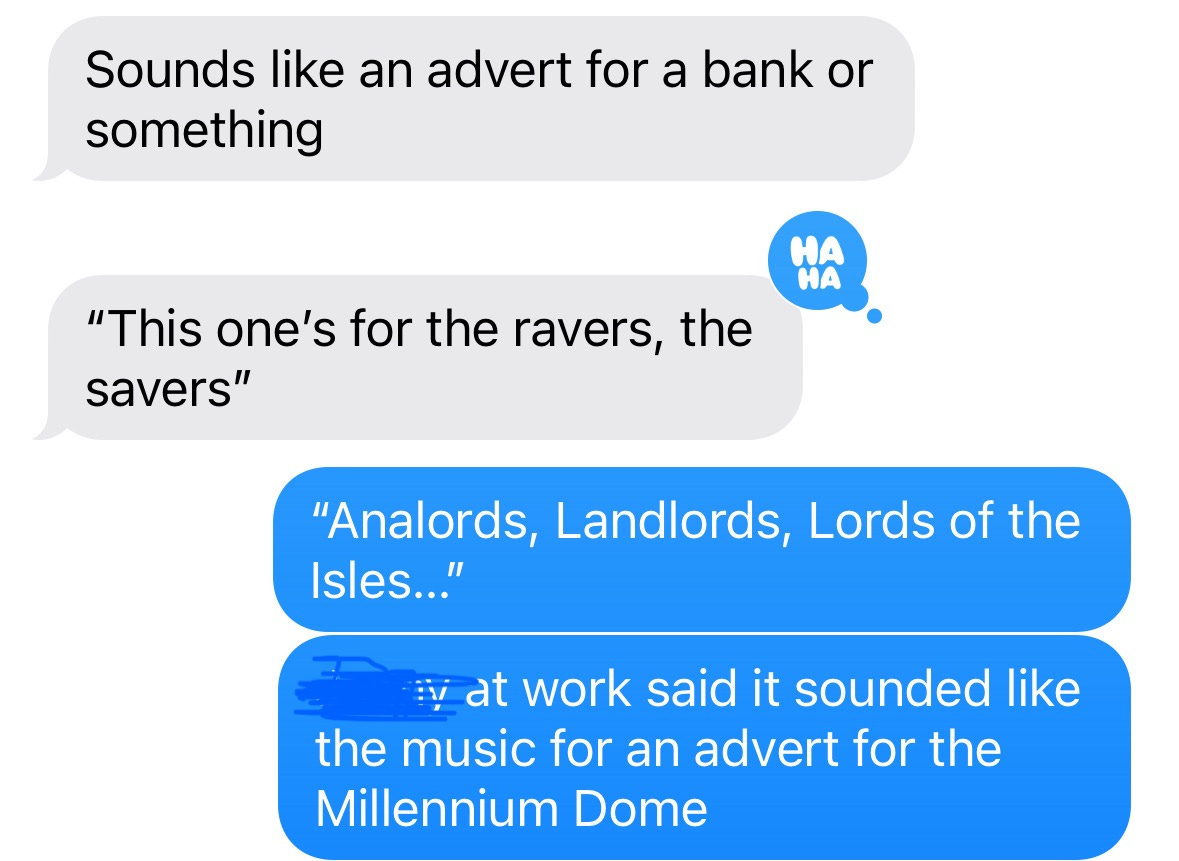Consuming Music As A Fan in 2024
Fans, Fandom & Consumers
The way the majority of people consume music over the past few years has shifted steadily onto streaming platforms now, and that doesn’t look like changing any time soon. Whilst they don’t pay much on a per-stream basis, they do make up the bulk of digital income for the majority of artists and labels out there. But how does this impact how we actually engage with music? It’s fed into our ears by choice or by algorhythm, and often you’ll choose to listen to an album and your streaming platform of choice will continue to play you similar music long after that’s finished. If it’s a new album you’ve not heard in full before you might not even notice until a couple of songs later, such is the ability for Spotify (for example) to recognise and tag songs with a similar sound or mood.
Think back to the last few decades and music fandom was a much stronger proposition - you’d buy as many of their releases as you could afford, the bigger artists would run fan clubs with regular newsletters, certain bands and scenes (either nationally or locally) would inspire people to create fanzines, you’d buy magazines featuring interviews or posters or lyric sheets, often on a weekly basis.
Some artists these days may still have fan clubs, plenty will have mailing lists, but there often isn’t much benefit to being on them other than getting a pre-sale link to concerts and maybe the odd link to stream or download a release before it hits DSPs. Artists use their social channels to speak to their fans, some will use it to plug their music, others will just use it as an outlet of their thoughts, and some will use them to push their political viewpoints (then moan about being cancelled when people don’t agree with them).
It doesn’t really foster much community does it, social media? Often you think you’re being spoken to insincerely, it mostly only exists to sell a product - there’s so much more artists and social platforms alike could be doing to cultivate that fandom outside of “Happy Friday, stream my new release here” and a linkfire. In the early days of social media fans felt they had a direct line to the artists, and that is still the case for artists that aren’t global superstars, but there still has to be a better way of that communication. Substack seems to be growing in popularity with artists, it gives them a platform to tell a story as well as share music, and I think you can host Q&A’s here too, but it still requires an effort from the artist to engage. What I’d like to see is an artist try a release campaign away from the usual Bandcamp Pre-Order/Spotify Pre-Save - a true early access to dedicated fans, a way to make the fans feel special, like a part of the release process - think back twenty years or so ago, and the band Feeder asked fans to send in footage of themselves miming their track ‘Just A Day’ which they then turned into a music video to be shown on MTV etc. I don’t know if Feeder did much since that video but what a way to capture a fan for life. (whilst searching for that I’ve just seen that during the pandemic they did an updated version featuring some of the original ‘cast’)
What if an artist hosted a stack of demos somewhere (Arctic Monkeys got their big break by doing so on MySpace, as did Lily Allen, Kate Nash and countless other acts around that time) and then invited a handful of their biggest fans (of course, how do artists identify them in the age of GDPR and DSP’s controlling access to that data? there’s ways to do this that your distributor can help with) to critique/remix/sequence the release? Give them an exec producer credit (but not publishing!), a thankyou on the sleeve notes, a free copy of the album, and let them have a say on things like artwork or something like that? Invite them to an exclusive playback session. You don’t have to actually take it on board, but it at least gives fans a sense ownership. Release the record through your mailing list, get a PR team on board, then put it on DSPs a couple of weeks later. Obviously this means going against the grain and potentially upsetting DSP’s but if you’re an artist with a big enough profile they’ll playlist your tracks anyway.
There’s so much more artists and labels can be doing to cultivate - and most importantly retain - a fanbase and it’s hard in this age of data overload to work out what’s important (does it matter that people are steaming your release on a PS5 or Xbox? Does anyone really need to know that kind of data for any reason? Nothing I can think of) but there’s ways to cut through the crap and figure out what can help you connect. People’s attention spans are short - shorter than ever - so once you’ve got them you need to hold onto them, to keep them engaged. There’ll always be that fan that buys everything on sight (I’ve been that person myself) but there’s a far bigger pool of floating listeners that you can move up to the next level of fandom, who’ll then buy your physical releases, come to your shows, pay for a Substack subscription etc. It doesn’t always matter that you’re in a playlist with a million followers, if 99.9% of them are just passive listeners - isn’t it better to reach 1,000 or 10,000 fans you know are going to really engage with you and your music?
There’s A Ghost In My House
On to this weeks new music then. I said last week I’d get round to listening to that new Astrid Sonne album and I’m glad I did. I’m not sure how an album can be lo-fi but richly textured at the same time, but this one manages that trick. Is it too early to call it an album of the year contender? Maybe, check back in December.
World of Echo is fast becoming one of my favourite shops, and their label is incredible too - from new stuff to reissues, the curation is always on point. Their latest is this debut album from Guests. There’s only one track streaming right now, and their write-up is far better than I can manage, but I’m liking what I’m hearing so far. It’s got a strong DIY vibe to it, but its friendlier and not as spiky as say something like Triple Negative for instance. Strange connection to make? Possibly, but there’s some loose relationship I’m hearing between the two.
David Holmes has remixed Orbital’s Belfast, with added vocals from “Manchester Street Poet” Mike Garry. I listened to this as soon as the promo landed in my inbox, but I wish I hadn’t. I fired it round to a couple of people and the response was unanimous - they’ve taken one of the most stunning, most heartfelt pieces of electronic music ever made and turned it into something really mawkish. I’ve stuck it in the playlist anyway so you can see how bad it is for yourself (but I’ve put the original after as a palate cleanser)
Continuing on the banking/landlord theme, Hiroshi Yoshimura’s 1986 ambient album Surround has been reissued on vinyl, pretty essential if you don’t have it already I’d say (and if you do have it already, get it on Discogs, it’s worth a grand!). It was commissioned by a Japanese housebuilder to help sell new houses, I somehow can’t imagine Barratt Homes getting on the phone to Aphex Twin to help them flog some newbuilds, but who knows?
The Trilogy Tapes continues their great start to the year with a new tape from British Museum, aka Wanda Group (and a million other aliases/Twitter profiles). Typical murky & fuzzy gear here. Tape only.
I’ve been catching up on stuff I missed or glossed over last year, especially the latest Durutti Column reissue Time Was GIGANTIC… When We Were Kids. Nice title, nice music. Of course it’s not quite of the level of Otis or Future Perfect, but those two tracks are perfect and can’t be bettered in any way IMO.
There’s a few other loose tracks I’ve been listening too to make up the playlist, once again thanks for reading, commenting, sharing etc. Till next week…



